General Call for Applications: 2027 Residencies
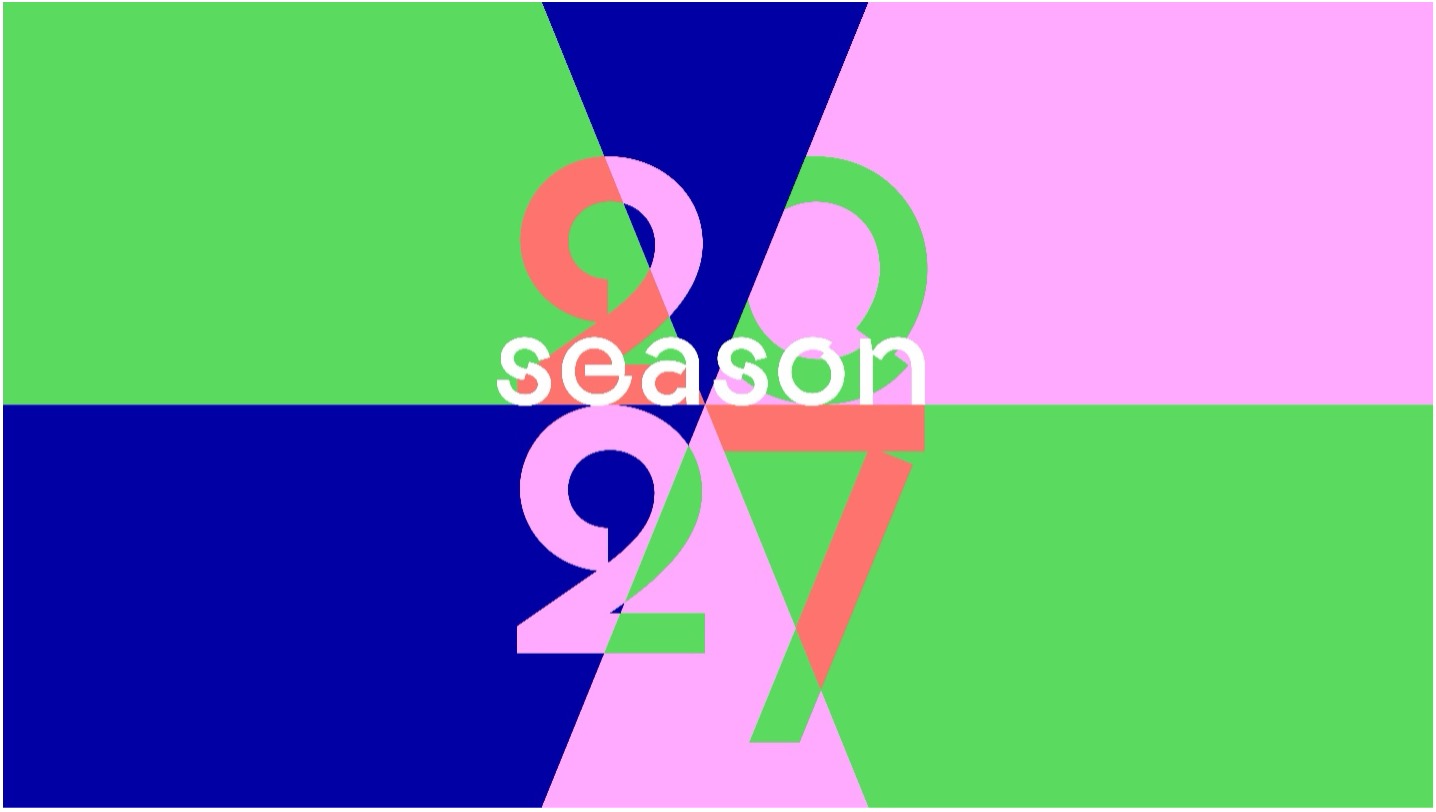
Image by Des Signes
Apply by January 29, 2026 for Villa Albertine’s 2027 residency program.
Since 2021, Villa Albertine has brought to life exploratory residencies throughout the United States. These residencies are designed as research-focused experiences, which aim to inspire and foster connections with local experts and stakeholders. These connections inspire new works, exhibitions, and collaborations that deepen reflection and enrich the relationship between French and American societies. Ahead of its fifth anniversary, the residency program has welcomed more than 370 artists and intellectuals from 15 disciplines in 60 cities and regions of the United States.
In 2027, Villa Albertine will welcome a new cohort of artists and thinkers who will develop projects that can only take shape with a stay in the United States. In total, around fifty residencies in all disciplines will be supported across the U.S. Lasting between one and three months, most residencies will be based in a single city, while a few will take place in several locations.
Each applicant is invited to imagine a creative project that engages with the dynamics and specific characteristics of the territory they wish to explore. Projects developed during the residency may be entirely new initiatives conceived specifically for Villa Albertine, or the continuation of an existing body of research.
Rooted in immersion and direct engagement with American society, Villa Albertine residencies are designed to create opportunities for research, visits, and various exchanges. The residencies do not focus on production, but instead provide the time, space, and context to inspire and develop creative projects, with the goal of fostering exchange, dialogue, and new collaborations between France and the United States.
Villa Albertine is an institution of the French Embassy in the United States, supported by the French government and Albertine Foundation. Its mission is to strengthen connections between the United States, France, and the wider French-speaking world through culture and education. Villa Albertine operates in ten cities across the U.S.
This program is supported by the Societe Generale Foundation, a major patron of Villa Albertine residencies.
Join our online information session (in French) on December 11, 2025, at 6:00 p.m. (Paris time) via Zoom. Click here to attend the meeting and bring any questions that you may have.
Villa Albertine is looking for creators, researchers, and culture professionals with an original research project they wish to pursue in the field of arts or ideas that requires an immersive stay in the United States. The project should relate to the challenges of the territory explored and should initiate active dialogue with local actors. Villa Albertine particularly values projects that cover contemporary global issues and the transatlantic relationship as well as projects that may lead to lasting cooperation between France and the United States.
The disciplines and professional fields considered may include, but are not limited to, visual arts, architecture, photography, performing arts, street arts, music (excluding applicants covered by the Classical Music call for applications), cinema, television , literature, nonfiction, comics, children’s literature, museology, heritage, art history, perfume, fashion, digital creation (immersive experiences, video games, and other forms of creation related to new technologies, including artificial intelligence and virtual reality), podcasts, culinary arts, etc. Interdisciplinary projects and cross-disciplinary approaches among several fields of research are also welcome.
An exploratory residency, as envisioned and supported by Villa Albertine, is not a solitary endeavor but rather a field investigation, one that inspires creativity and builds connections. What gives the project its meaning is its relationship to the territory itself. Encounters, visits, events, and exchanges all serve to enrich the resident’s work.
The primary goal of the residency is to foster the artistic development of the resident’s project. While the residency may lead to professional or financial opportunities that benefit the resident’s career, commercial objectives cannot be the residency’s main purpose.
Villa Albertine welcomes professional artists and researchers, whether established or emerging. The program is open to a variety of backgrounds and career profiles. Special attention is given to projects that resonate with the dynamics of the territory being explored.
Villa Albertine primarily favors individual applications. However, joint applications may be accepted when applicants’ artistic or intellectual collaboration is clearly justified. Applications from groups of more than two people will not be accepted.
The call is not limited to French or Francophone applicants alone, and is open to any creator, researcher, or cultural professional who meets the eligibility criteria outlined below, including the support of a French partner.
Note:
For specific reasons related to the support provided, residencies in Applied Arts & Design, Classical Music, and Artificial Intelligence have separate calls for applications. Candidates in these disciplines are invited to refer to the following links:
Applicants are invited to propose a residency anchored in a city or a region in the United States. They can choose one of the ten cities where Villa Albertine has a permanent office (Atlanta, Boston, Chicago, Houston, Los Angeles, Miami, New York, New Orleans, San Francisco and Washington DC), or another city or territory.
Applicants may also propose a traveling residency, which is a multi-city residency in different regions or cities of the United States. It should be noted, however, that a very limited number of itinerant projects will be selected.
Candidates are asked to select a residency in a territory that corresponds to the themes they wish to explore. They will be supported by the Villa Albertine office that manages the jurisdiction in which the residency takes place. For example, a residency in Seattle would be assigned to Villa Albertine’s office in San Francisco.
In addition to a variety of possible residency locations, Villa Albertine strives to provide individualized support for each resident. This support is based on the mobilization of a team of 80 people across 10 cities, as well as the systematic establishment of partnerships with French and American organizations to ensure that the resident is quickly integrated into an environment that facilitates meetings, discoveries, and inquiries. A series of appointments and visits will be tailored to each resident, depending on their projects and needs. The relevant Villa Albertine office will support residents by offering its expert knowledge of the local artistic and cultural scene and its network of partners.
Alongside the support provided by Villa Albertine, the exploratory residency model emphasizes the importance of initiative and independence—essential qualities for making the most of a field-based research experience.
Villa Albertine will also support residents in their analysis of material and logistical requirements to best conduct the projects. It will manage the residents’ arrival and stay and will cover related travel costs and living expenses. This includes:
- Residency allowance covering everyday expenses (meals, local transport, etc.). Example: this allowance amounts to $100 per diem in Washington D.C.
- International and domestic travel costs
- Accommodations
- Car rental (if the nature of the city or project requires a car)
- Health, public liability, and repatriation insurance
Villa Albertine cannot commit to covering expenses other than the aforementioned travel costs and living expenses. If the applicant identifies specific needs (technical, material, workspace, etc.), they should present solutions to demonstrate the project’s viability (partnerships, extra financial support, etc.).
Villa Albertine generally encourages residents to undertake their stay without companions (such as family members or others not directly involved in the project). However, if accompaniment is necessary, for instance, for a parent with dependent children or in cases where a disability requires the presence of a caregiver, this will be taken into account when organizing the residency, and efforts will be made to provide suitable housing. Companions, however, will not receive program support or financial coverage for their travel or living expenses.
Each applicant is asked to have their residency project supported by a French partner, based in France. Depending on the case, the partners can support the project in one of three ways:
- Conception of the residency project: assistance in writing the residency presentation, finding resources and contacts that could help the applicant, etc.
- Promotion of the residency: communication on social media, or support with content creation about the residency (articles, podcasts, videos, etc.).
- Post-residency follow-up: presenting the work carried out by the resident in the United States (conferences, professional meetings, etc. or help in developing an artistic or intellectual project) in France.
These partners are not asked to contribute financially to the residency.
Any public or private organization, governed by French law and based in France, can be a partner. The organization cannot be one that the applicant directs or has founded, but it can be the applicant’s employer or another distinct partner.
For applicants who do not have French social security and for non-French applicants living outside countries eligible for the “Visa Waiver Program,” the French partner must be able to sign an agreement with Villa Albertine to handle the administrative management of the residency and the necessary procedures for the resident’s entry into the United States.
In addition to the main French partner, applicants may also use other French partners and U.S. entities that could help develop the project (e.g. networking, provision of a workspace, etc.) to support their application.
Eligible candidates should possess the following:
- Professional experience in their field of artistic or intellectual creation, demonstrated through a CV or file (less than ten pages long) that presents their career and work.
- Fluency in English, proven by sending a short, three-minute (max) introductory video of their career and project. The video is not expected to be edited but rather should be a simple video shot in front of the camera in which the candidate does not read from a prepared text.
- The support of a French partner associated with the residency project, which can be any public or private French entity (a cultural institution, an organization, a publishing house, a firm in the creative and cultural industry, etc.). The chosen organization should inform Villa Albertine of their interest in supporting the applicant with a letter addressed to Mr. Mohamed Bouabdallah, Cultural Counselor of France and Director of Villa Albertine.
- The candidate must be at least 21 years old before their planned date of departure for the residency.
The selection criteria considers:
- The applicant’s background: the manner in which the applicant carries out their artistic or intellectual practice professionally; recognition from peers; the way their residency project is a logical continuation of their work.
- The quality of the project: the project is clearly articulated, and the artistic, cultural, and intellectual focus it develops is relevant and has a strong link with the local community or environment.
- Relevance of the project to the residency location: the project should be strongly tied to local dynamics and challenges that require the applicant to travel to the United States.
- Feasibility of the project: Villa Albertine reserves the right to not host projects it cannot properly support.
The candidate should be able to adapt to any restrictions in regions where they plan on spending their residency. For example, it is strongly recommended that they have a driver’s license if they plan to work in sprawling cities, such as Los Angeles.
Applications should be submitted by January 29, 2026 at 11 :59pm, French Time (UTC +1), by completing the form here.
It is strongly recommended not to wait until the deadline to avoid possible traffic or technical difficulties on the platform.
An applicant may only submit one application per season.
Applications can be revised at any time before the closing date of the call for applications. Once submitted, the application cannot be further edited.
For applications that require the participation of two people, only one application must be submitted. Each participant must present themselves in the same form.
Since the applications are also examined by English-speaking experts, the candidate must answer any questions in English that require a written response.
The candidate should mention the territory and the desired duration of the residency (one, two, or three months). Villa Albertine reserves the right to propose a shorter residency period than initially indicated by the candidate, or even to adapt the itinerant residency to make the project more feasible.
Any incomplete or noncompliant application will be deemed inadmissible. Any intentionally false declaration will automatically render the application void.
Applications will be reviewed in three stages: an initial evaluation by Villa Albertine’s disciplinary experts, followed by a shortlisting process conducted by juries made up of American arts and culture professionals in each city where Villa Albertine is based. The final selection will then be made by an international jury convened in New York, composed of leading figures from the arts and cultural sectors (for a list of the previous year’s jury members, please refer to the jury report).
Villa Albertine juries are independent and their decisions are final. They are not required to provide individual feedback to applicants. A jury report will be published at the conclusion of the selection process.
The selected fellows will be announced in mid-June 2026.
Alongside this general call, Villa Albertine is launching two calls for applications for residencies in specific disciplines in 2026:
- Crafts and Design call (open from November 20, 2025 to January 29, 2026, for a residency of one to three months in 2026).
- Classical Music call (open from November 20, 2025 to January 29, 2026, for a residency of one to three months in 2026).
- Artificial Intelligence (open from November 20, 2025 to January 29, 2026, for a residency of two months in 2026).
Are residents paid?
Villa Albertine operates under the aegis of the French Ministry of Europe and Foreign Affairs. It may therefore grant nontaxable residency allowances. They will be adjusted in accordance with the cost of living in the relevant cities (e.g. $100 per diem in Washington D.C., amounting to $3,000 per month), with accommodation already being covered separately.
May I carry out a project in a city or territory that is not among the ten cities where Villa Albertine is based?
Yes, you may. Please state the city or cities where you wish to conduct the residency on the form.
Are there quotas per city or residency type?
Villa Albertine’s hosting capacity mainly depends on its teams in the U.S., which are spread out over ten cities and coordinated from New York. In this regard, it can host six to eight residents in New York each year, three or four anchored in nine other cities, and six to eight traveling residencies. Given the potentially high number of applicants for a city like New York, it is recommended that you consider different options for your project.
In all cases, the first choice of city should be stated with a specific justification.
Certain cities attract a higher volume of applications, which naturally increases their selection rate. For the selection of the previous cohort, the cities with the highest number of applications were New York, Los Angeles, and San Francisco.
You can consult the jury report which includes statistics on the projects submitted for the 2025 calls for applications.
May I come with one or more people?
Only the individual who has applied may come to the residency, except for applications submitted by groups of two or three people when the artistic or intellectual work justifies it. If the arrival of a family member or caregiver is necessary, Villa Albertine will reserve suitable accommodation.
Can I apply if I already live in the U.S.?
If a French partner supports your application and you meet other criteria for eligibility, you may apply. You should justify how Villa Albertine’s support would help you immerse yourself in a given region of the U.S..
Can I do the residency in several stays or visits?
Villa Albertine proposes residences for a single stay. However, if it is necessary for family or other imperative reasons, Villa Albertine will consider the possibility of a residency between two stays.
I would like to go to several cities overseen by the same Villa Albertine office (e.g. Los Angeles and Las Vegas). Is this considered a traveling residency?
Yes, as long as the residency does not take place in a fixed location, it is considered to be traveling.
How many people applied last year? How many did you select?
To find all the information about the 2025 call for applications, selection process, and statistics, please refer to the online jury report via this link.
Can an institution of the French cultural network based outside France (e.g. Alliance française, Institut français) be my partner?
No, the French partner organization must be based in France.
Can an organization be a partner for multiple applicants?
Yes, this does not discriminate against any application.
I’m a craftsman and/or designer and would like to apply for a 2027 residency at Villa Albertine. Which call should I respond to?
You must apply for the Crafts & Design thematic call via this link.
I’m a classical musician or classical music professional and I’d like to apply for a 2027 residency at Villa Albertine. How can I apply?
You must fill out your application form for the Classical Music thematic call via this link.
I’m a professional creator in the field of AI and I’d like to apply for a 2027 residency at Villa Albertine. How can I apply?
You must fill out your application form for the Artificial Intelligence thematic call via this link.
Any other questions?
Please contact candidatures@villa-albertine.org.
In partnership with
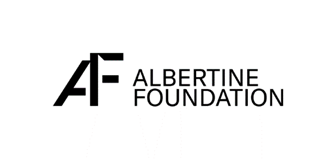
Albertine Foundation
Albertine Foundation is an American nonprofit organization dedicated to supporting French American relations through innovative cultural and educational programs.
In close partnership with Villa Albertine, the French Institute for Culture and Education, Albertine Foundation administers grant programs across diverse creative disciplines including visual and performing arts; cinema; and literature, while also supporting exploratory residencies for creative professionals and thinkers across the United States. Albertine Foundation also contributes to promoting French language learning in the United States and funds new opportunities for students, professors, and researchers in the spheres of secondary and higher education.
Albertine Foundation is a non-profit 501(c)(3) corporation by Internal Revenue Service determination. Contributions from corporate, foundation, and individuals are tax-deductible to the extent allowed by law.
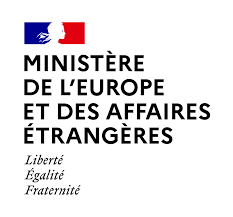
French Ministry of Europe and Foreign Affairs
The Ministry for Europe and Foreign Affairs works to represent, defend and promote the interests of France and French nationals in all areas in foreign countries and international organizations.
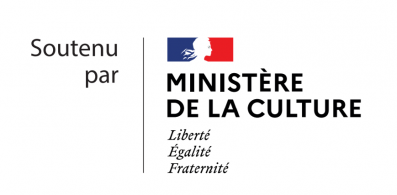
Ministry of Culture
The French Ministry of Culture aims to make the major works of humanity— and especially those of France— accessible to the largest number of people possible. As such, it maintains a policy of conservation, of protection, and of development of all components of French cultural heritage. It promotes the creation of works of art and of the mind, and the development of art practices and education. It further contributes to cultural initiatives outside of France, and to initiatives relating to the establishment of French cultural programs throughout the world.
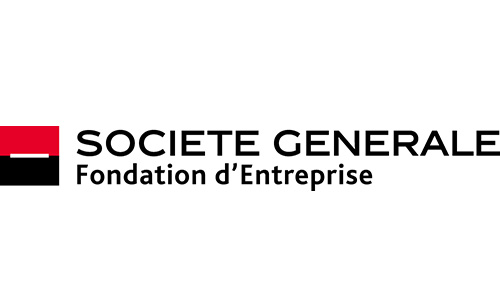
Societe Generale Foundation
The Societe Generale Foundation contributes to the development of a more inclusive and sustainable society by supporting initiatives that generate a positive social impact in the fields of Education, Culture and the Environment. Driven by an entrepreneurial spirit, it provides support to structures of general interest and cultural organizations that carry out projects with a high impact potential, whether they are incipient or large-scale initiatives. The Foundation operates in France, at both national and regional level, and also supports multi-country or internationally oriented projects.
As a major partner of Villa Albertine’s residencies, the Societe Generale Foundation is committed, through this exceptional partnership, to supporting the career development of artists and promoting artistic excellence. It contributes to transatlantic dialogue through the arts and to the international reach of French culture. The Foundation particularly supports the development of classical music within the residencies through a dedicated call for projects, continuing a commitment of more than 38 years in this field. This partnership also builds upon the Societe Generale Group’s ongoing support of contemporary art for the past 30 years, notably through a collection of nearly 1,800 works — paintings, graphic arts, photographs and sculptures — by French and international artists. Through these commitments, Societe Generale reaffirms its dedication to artistic creation and excellence, in France and internationally.
For more information, visit https://fondation.societegenerale.com/en.
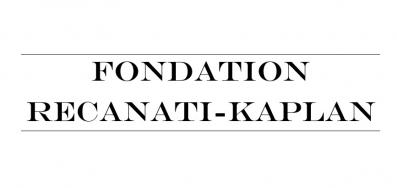
Recanati-Kaplan Foundation
Created in 2010 by Thomas S. Kaplan and Daphne Recanati-Kaplan, the Recanati-Kaplan Foundation supports the development of initiatives of excellence in four areas: the protection of our biodiversity; research in medical sciences; the teaching of history and philosophy; and cultural, artistic, and intellectual bridge-building between the Arab world, France and the United States.
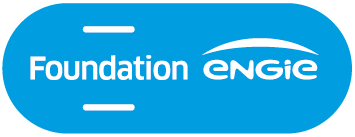
Engie Foundation
Created in 1992, the ENGIE Foundation is dedicated to translating the ENGIE Group’s commitment to social solidarity into action. In line with the Group’s business responses to social and environmental challenges, the Foundation supports innovative philanthropic projects that contribute to build a more harmonious and sustainable future. In particular, its actions are in line with the Group’s ambition to contribute to the Sustainable Development Goals (SDGs). Emergency aid for populations affected by disasters, Children’s Aid and Education, Biodiversity & Climate, Access to Energy, the Fight against Poverty and Social Integration are the Foundation’s top priorities, with a focus on caring for life and our planet, and meeting the needs of vulnerable or remote populations.
Every year, the Foundation supports over a hundred projects worldwide. With almost 50% of its projects dedicated to access to renewable and sustainable energies and to biodiversity by 2024, the ENGIE Foundation is committed to the environment year after year. Supporting high-impact projects, participating in the collective effort of Agenda 2030 and conveying ENGIE’s raison d’être: this is what guides the action of the ENGIE Foundation on a daily basis.
